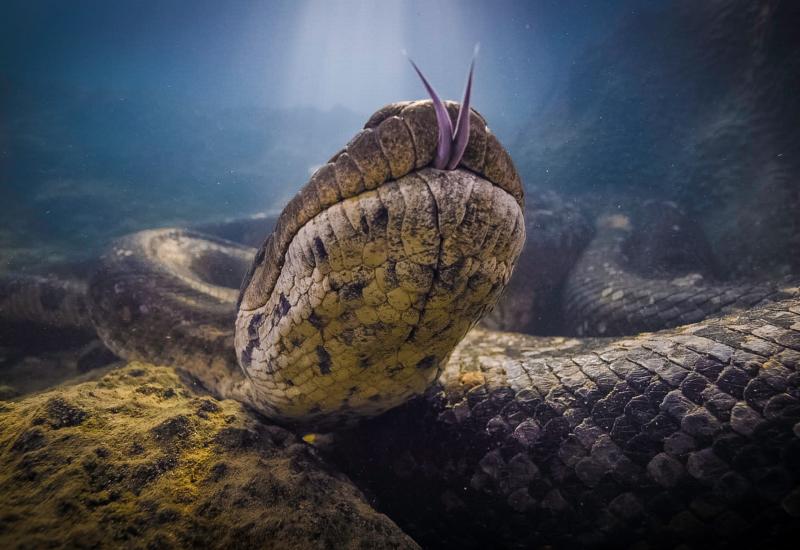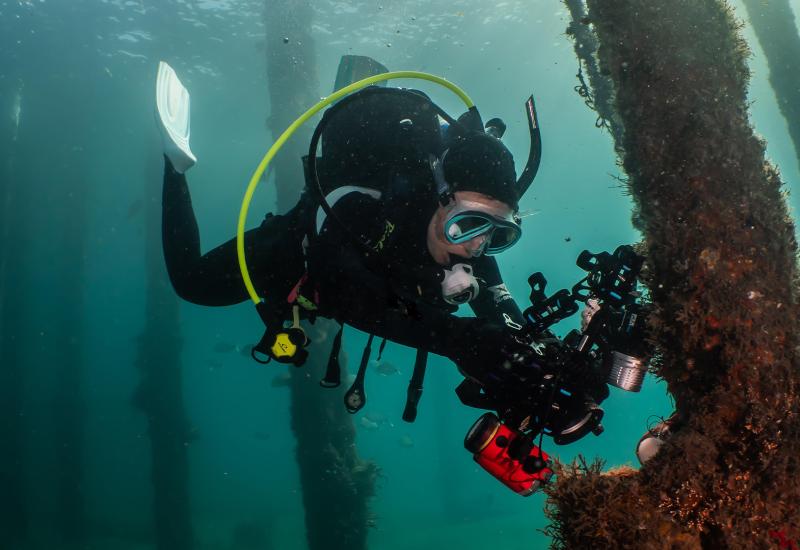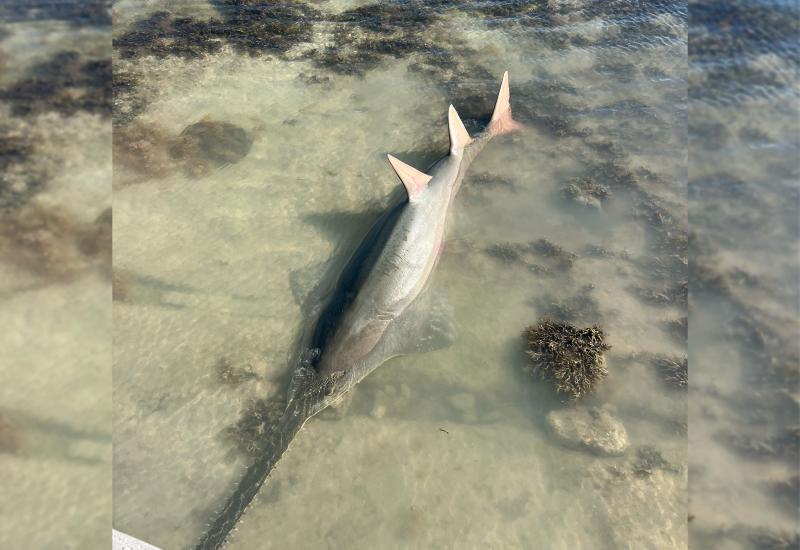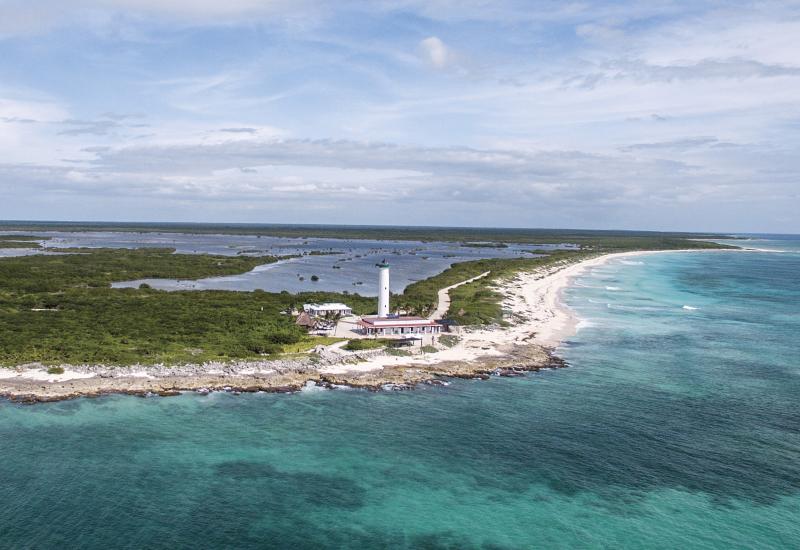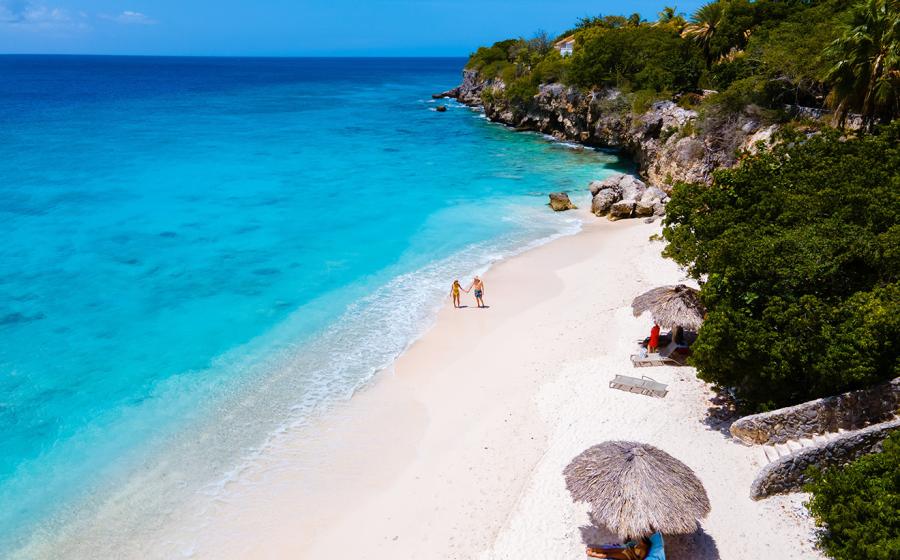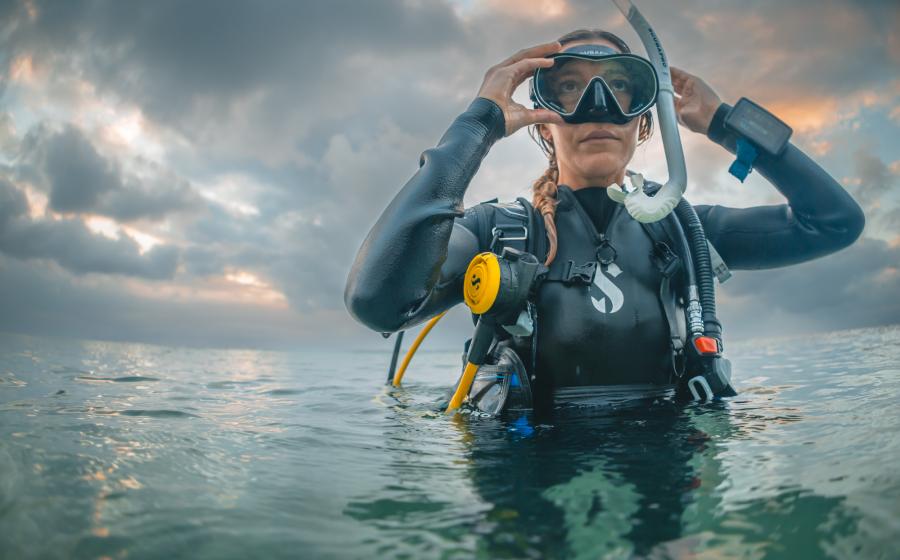Shrinking Arctic Ice Trouble For White Whales
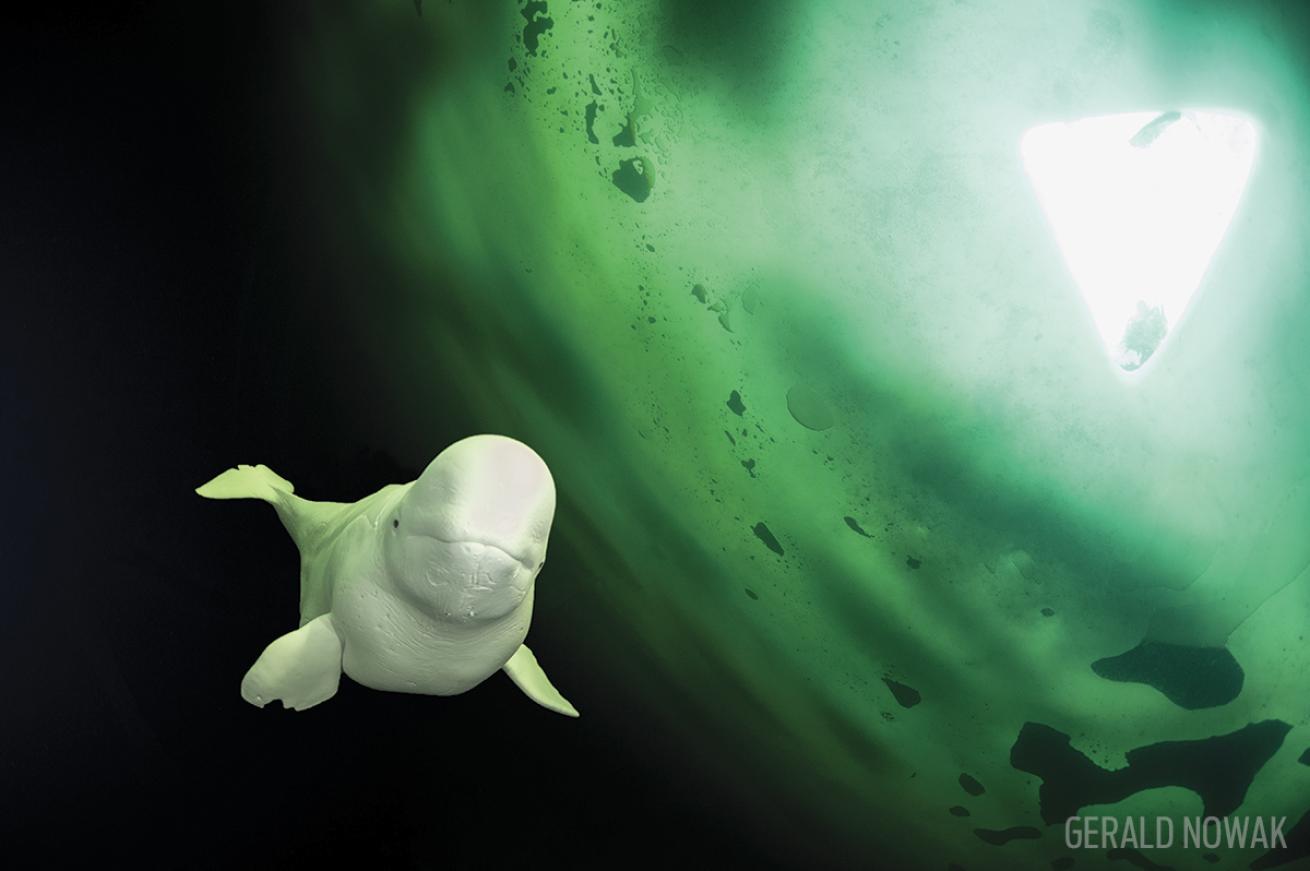
Gerald NowakScientists project there will be no summer sea-ice coverage in the Arctic by 2050, posing major threats to white whales and other Arctic animals.
Friendly, gregarious, pure white — the Arctic’s beluga whales are creatures like no other on Earth. It’s not easy to dive with them — Netherlands-based Waterproof Expeditions runs trips in May and June, when lucky visitors might get a glimpse — soon it might be impossible. Dependent on a food chain that starts with algae found under the sea ice, the rapid disappearance of that ice might end with the disappearance of belugas themselves.
Described as “near threatened” on the IUCN list of endangered species because of water contamination and whaling, Delphinapterus leucas is near the top of a food chain that starts with algae formed on the bottom of sea ice. In summer, that algae sinks to the bottom, where it’s consumed by worms that are in turn eaten by fish such as Greenland halibut, which are then eaten by belugas.
Compared with 30 years ago, Arctic sea-ice coverage has declined greatly. “It is very simple,” researcher Thomas Brown of the Scottish Association for Marine Science told Britain’s Guardian newspaper. “If you take the sea ice away, you cannot have sea-ice algae.” If present rates of warming continue, scientists estimate there could be zero summer sea ice by midcentury.
Without that ice — which also gives Arctic animals hunting and calving grounds — scientists predict huge impacts on wildlife, and on the 4 million humans who live in the Arctic and depend on this complex ecosystem.
Belugas are “on the front line of change in the Arctic, and it is clear they are having to make changes in behavior to survive, fishing farther and farther into open water,” Brown told The Guardian. “We need to find out urgently how significant are these changes.”
More Cold-Water:
Best Ice Diving Destinations in the World
Essential Scuba Gear for Ice Diving
Ice Diving with Narwhals in the High Arctic

